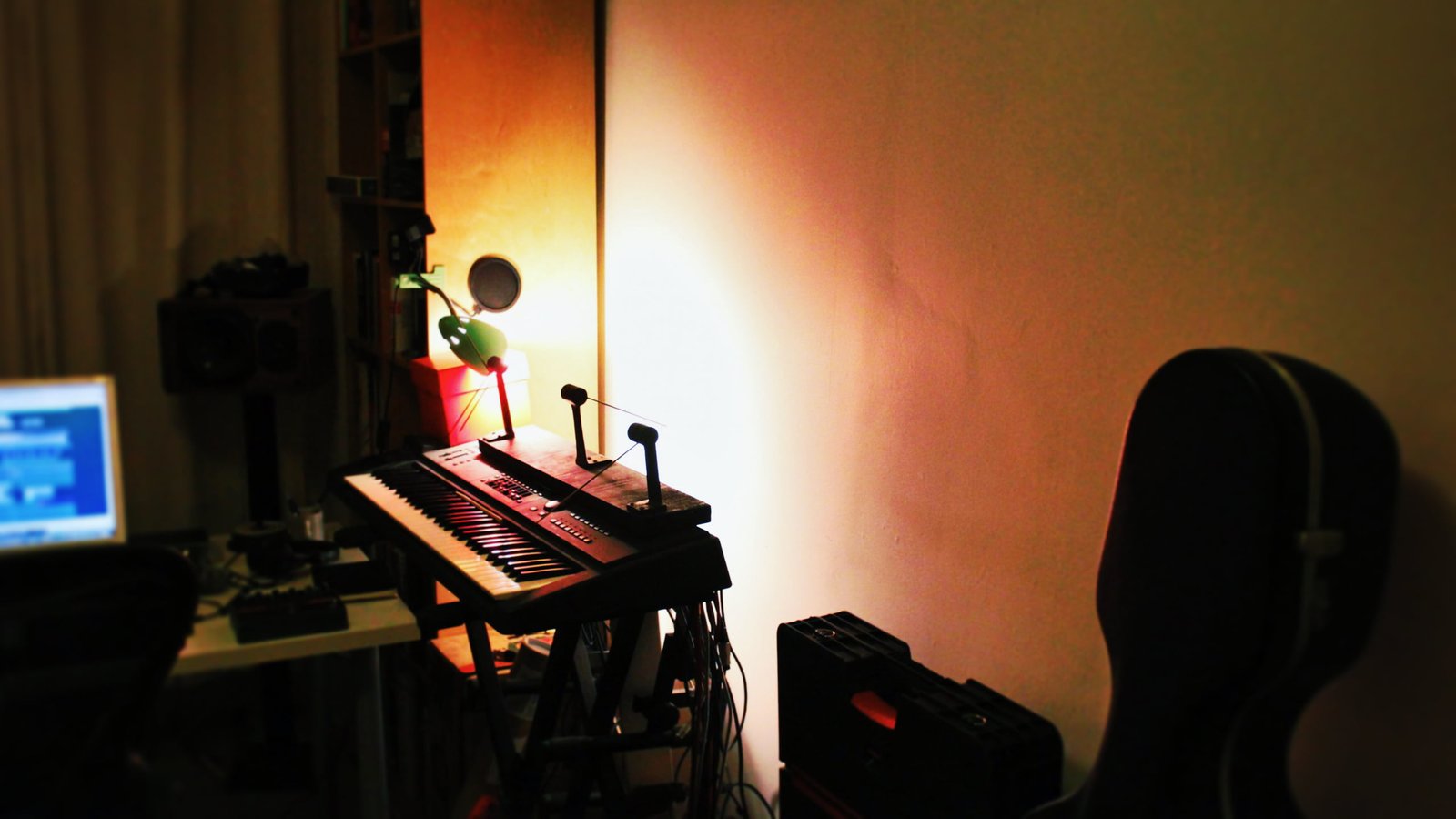Why Make Music?
who is it for?
This is the second part of some thoughts on musical background, and what might inspire our drive to make music. In the last part I spoke generally about the creative mindset as it applies to all creation, and here I’ll go a little deeper into alternative avenues and inspirations.
The first and greatest influence at the outset of creation is almost certainly who this music is being created for. Is it personal or commercial? Is my motivation to reach a maximum audience or to get closest to some ideal in my head? Or heart? Am I seeking approval and recognition? Or is it some combination of several. It is not necessary to define these details in advance, but subconsciously you may find these considerations exerting undue influence on what you create.
For example, I had an unrecognised bias when I first started that said that I should have a kick drum under everything and have my session running at 120BPM. I believe I am not the only one. This came from the fact that I listened to a lot of house and techno (although certainly not exclusively), and from a desire to reach what I thought was my audience. This was not a conscious decision, but merely an automatic response to what was around me. It was only after a few years that I realised I could drastically alter these parameters, and many years later that i realised I quite liked removing the parameters entirely. It is worth being aware of any assumptions you are making.
Another aspect of this is that when creating with others in mind, we are artificially limiting our options by second-guessing what others want, based on a set of assumptions that may well not even be correct. For me personally, creative kryptonite is having a set of pre-conceived notions of what is required, and trying to shoe-horn everything into these intellectual boxes. Even when working to a brief in music for film or TV, I will give myself very few fixed parameters at the beginning, and allow the creative process as much latitude as possible before gradually dialling in the specifics.
The same thing goes for creating dance music, if you are creating music with a specific audience in mind, or to get a gig at a particular club. Or creating ‘art’ music to fit into a particular scene and get residencies with a particular organisation. These pre-conceived notions can really hamper creativity in its most free expression, so it’s always worth being aware of it. We all suffer from it one way or another, and creative bias based on previous experience and previous work is inevitable, but if we become aware of it we can then take measures to counteract it and release a new freedom of expression.

music for oneself
In future posts I’ll talk about some of the potential musical outlets available to us as creators, but I would always advocate the importance of making music for ourselves first and foremost. This is the wellspring of creative intelligence, and it is only by exercising this faculty that we can keep creativity in our lives flowing. Commercial concerns are always present if we do something creative for a living, but in my experience it is vital to always keep a core practice going that is purely for our own satisfaction and enjoyment. All of our other work will also benefit. It is not uncommon for creative people to burn themselves out once they are on to a commercially successful track, pursued at the expense of their own artistic output. That commercial work needs new creative life to keep it renewed and fresh, and to keep us from becoming dry and formulaic.
It is one of the interesting aspects of creativity in general that what we make for ourselves, if pursued honestly and with integrity, naturally speaks to others too. I recently watched an excellent interview with Jacob Collier in which he talks about motivations for writing music, and I can highly recommend it. He also has a bit of a pop at Rick Rubin for his book ‘The Creative Act’, but to my mind they are actually saying the same thing from slightly different angles. We work for ourselves first, but at some point in our development our music speaks to others too as an extension of ourselves. It might further be argued that as we ourselves develop and broaden our outlook beyond the personal ego, so our music too becomes increasingly meaningful in a wider context.
An interesting sidetrack here, for those interested, is from Iain McGilchrist’s ‘The Master & His Emissary’ about brain hemisphere specialisation and behaviour. His (well argued) conjecture is that our society has become increasingly left-hemisphere focussed, at the expense of the right hemisphere. The right hemisphere sees the big picture and is the powerhouse of free thought, whilst the left hemisphere deals with a more limited logic, based on a pattern that it has taken to be reality. So when we repeat something enough times, this pattern of behaviour gets passed on to the logical and relatively uncreative left hemisphere, which will happily repeat the same idea until the end of time. I am no doubt murdering McGilchrist’s subtle and beautiful argument, but the implication is clear; we must keep our creative brain in the game to avoid becoming automatic in our creations.

what effect do i want to elicit?
I like to think of music operating on a number of levels at the same time. These constructs don’t necessarily matter, but I find it interesting to think about how these elements interact with the listener. It is just one more way to look at our creative process.
- On the physical level it can create a desire to move, to dance. Any child is immediately in touch with this, and our natural desire to dance is inbuilt into our wiring. When I first felt the release of being able to dance uninhibited by shyness and conditioning, the result was an enormous sense of wellbeing and emotional fulfilment. The physical effects of music are also increasingly being understood in a range of more subtle forms, relating to the way vibration and resonance affect the body. This is the root idea of sound healing, something which has existed in nearly every culture on Earth in some form, and which clearly overlaps with the transcendent dimension of sound. I will definitely talk more about this at a later juncture.
- On the emotional level, music excels at being able to create an immediate and complex response in our nervous system. Every person has their own set of unique internal references which can influence which music affects us in what ways, but we also have a shared language of unconscious emotional triggers, which it seems music has a particular access to. There are also a range of cultural influences which affect these responses, but in general, music considered ‘sad’ in one culture will also be considered ‘sad’ in another. Understanding how to use emotion is music is a lifetime skill, and we all have our own individual framework on which to build our musical language.
- On the transcendent or spiritual level, music almost has a monopoly amongst the arts (or at least a large market share) on its ability to access a higher part of our inner world. This is a subtle and, in the West, a more contentious property of music, falling as it does beyond the bounds of accepted intellectual reasoning. In other cultures it is understood that music can be used to elevate consciousness and access higher mind states and it is no coincidence that music exists as part of every culture’s religious and spiritual rites, often forming a central role in ceremony and ritual.
When we create music, we have access to all parts of ourselves and can express all of these qualities in our music. Music is the ultimate form of expression, acting as a transducer between the consciousness of the creator and that of the listener, and as musicians we have a great opportunity to reach people at a number of levels.
Here I would like to point people in the direction of the ‘Reading’ page as it contains a lot of really interesting stuff related to how we experience the world, and our creative lives. There is a particular focus on music and creativity of course, but it also covers a lot of other areas related to consciousness, psychology and the nature of reality.



